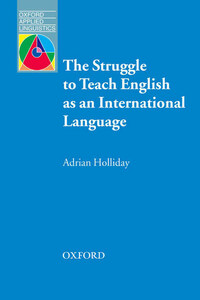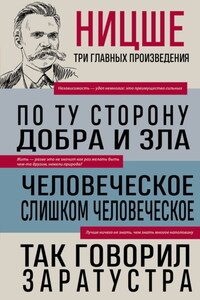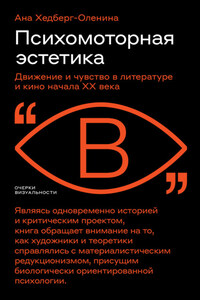Published in this series:
Bachman: Fundamental Considerations in Language Testing
Bachman and Palmer: Language Testing in Practice
Brumfit: Individual Freedom and Language Teaching
Brumfit and Carter (eds.): Literature and Language Teaching
Canagarajah: Resisting Linguistic Imperialism in Language Teaching
Cook: Discourse and Literature
Cook: Language Play, Language Learning
Cook and Seidlhofer (eds.): Principle and Practice in Applied Linguistics
Ellis: SLA Research and Language Teaching
Ellis: Task-based Language Learning and Teaching
Ellis: The Study of Second Language Acquisition
Ellis: Understanding Second Language Acquisition
Ellis and Barkhuizen: Analysing Learner Language
Howatt: AHistory of English Language Teaching
Jenkins: The Phonology of English as an International Language
Kern: Literacy and Language Teaching
Kramsch: Context and Culture in Language Teaching
Lantolf (ed.): Sociocultural Theory and Second Language Learning
Lantolf and Thorne: Sociocultural Theory and the Genesis of Second Language Development
Meinhof: Language Learning in the Age of Satellite Television
Nattinger and DeCarrico: Lexical Phrases and Language Teaching
Phillipson: Linguistic Imperialism
Seidlhofer (ed.): Controversies in Applied Linguistics
Seliger and Shohamy: Second Language Research Methods
Skehan: A Cognitive Approach to Language Learning
Stern: Fundamental Concepts of Language Teaching
Stern (eds. P. Allen and B. Harley): Issues and Options in Language Teaching
Tarone and Yule: Focus on the Language Learner
Widdowson: Aspects of Language Teaching
Widdowson: Defining Issues in English Language Teaching
Widdowson: Practical Stylistics
Widdowson: Teaching Language as Communication
Great Clarendon Street, Oxford OX2 6DP
Oxford University Press is a department of the University of Oxford. It furthers the University’s objective of excellence in research, scholarship, and education by publishing worldwide in
Oxford New York
Auckland Cape Town Dar es Salaam Hong Kong Karachi Kuala Lumpur Madrid Melbourne Mexico City Nairobi New Delhi Shanghai Taipei Toronto
With offices in
Argentina Austria Brazil Chile Czech Republic France Greece Guatemala Hungary Italy Japan Poland Portugal Singapore South Korea Switzerland Thailand Turkey Ukraine Vietnam
OXFORD and OXFORD ENGLISH are registered trade marks of Oxford University Press in the UK and in certain other countries
© Oxford University Press 2005
The moral rights of the author have been asserted
Database right Oxford University Press (maker)
First published 2005
2012
10 9 8 7 6 5 4
No unauthorized photocopying
All rights reserved. No part of this publication may be reproduced, stored in a retrieval system, or transmitted, in any form or by any means, without the prior permission in writing of Oxford University Press, or as expressly permitted by law, or under terms agreed with the appropriate reprographics rights organization. Enquiries concerning reproduction outside the scope of the above should be sent to the ELT Rights Department, Oxford University Press, at the address above
You must not circulate this book in any other binding or cover and you must impose this same condition on any acquirer
Any websites referred to in this publication are in the public domain and their addresses are provided by Oxford University Press for information only. Oxford University Press disclaims any responsibility for the content
ISBN: 978 0 19 442184 3
Printed in China
ACKNOWLEDGEMENTS
Typeset by: Newgen Imaging Systems (P) Ltd., Chennai, India
The element of struggle in international English language education exists in two respects. It resides in the need for educators to re-align themselves in the face of the changing ownership of English and culturally divisive ideologies and practices. This book explores this struggle by means of a critical sociology of their worlds and conflicts. But the struggle also resides in how it is possible to write about an area of conflict while being situated within it in a position of power and privilege – from an English-speaking West which has dominated the TESOL world with its well-resourced institutions of teaching, training and publishing and the residues of a colonial past. I draw on email accounts from 36 ESOL educators from 14 countries, who include 20 colleagues from outside the English-speaking West. Their accounts have indeed influenced the direction the book has taken – often to unexpected areas of discussion – but their presence raises the issue of who I am to be able to incorporate their voices. Though it may exaggerate an opposition which does not always exist, one must take seriously Canagarajah’s concern about ‘white-skinned teacher/researchers from rich communities’ who ‘visit dilapidated classrooms of brown-skinned vernacular-speaking students in periphery communities’ (1999: 51). It cannot be denied that ‘Centre’ researchers trying to empower ‘Periphery’ communities to which they do not belong may in the end only strengthen the discourses of the ‘Centre’.
There are several factors to consider. First, English-speaking Western TESOL is itself a diverse, divided, and complex culture. The focus of this book is the cultural prejudices which emerge from a dominant, though particular ideology which has its origins within this culture but does not govern the thinking of all its members. A British academic critiquing this ideology is not therefore indulging in self-flagellating soul searching, but struggling for independence from thinking with which he and many of his colleagues do not wish to be associated. Second, cultural distance is relative. One cannot necessarily claim insider understanding of people because they come from one’s own community. Differences of age, class, institutional culture, gender, personal ideology, and so on also mediate in our visions of each other. I am not always in a better position to understand my British colleagues in Canterbury than the Egyptian colleagues I worked with so closely for five years. There is also a broader professional community which in a multiplicity of ways interconnects ESOL educators of all types. Its ideological, political, and economic divisions not so much inhibit cultural study, but characterize the particular coherence of the culture which enlivens my investigation.








